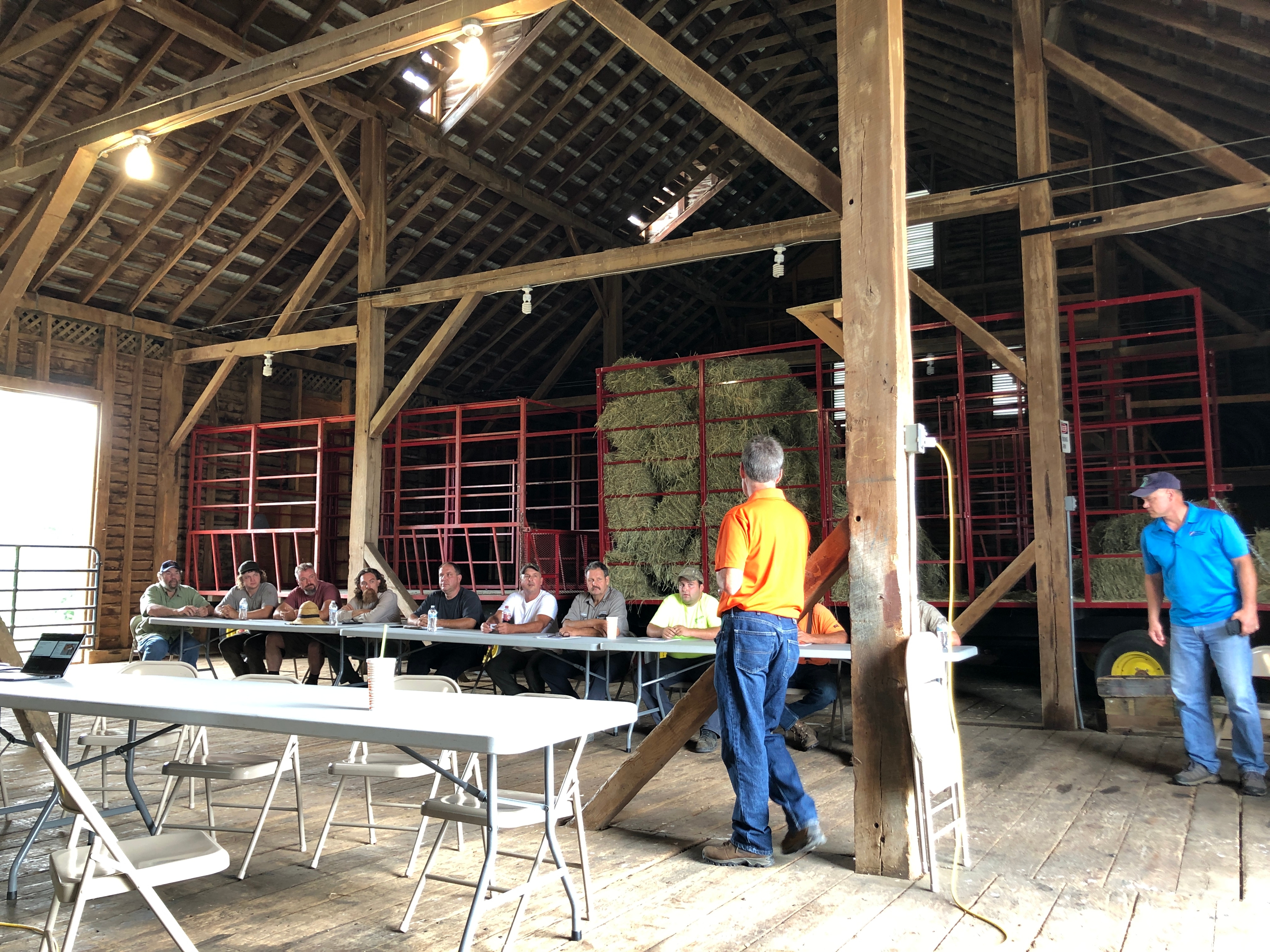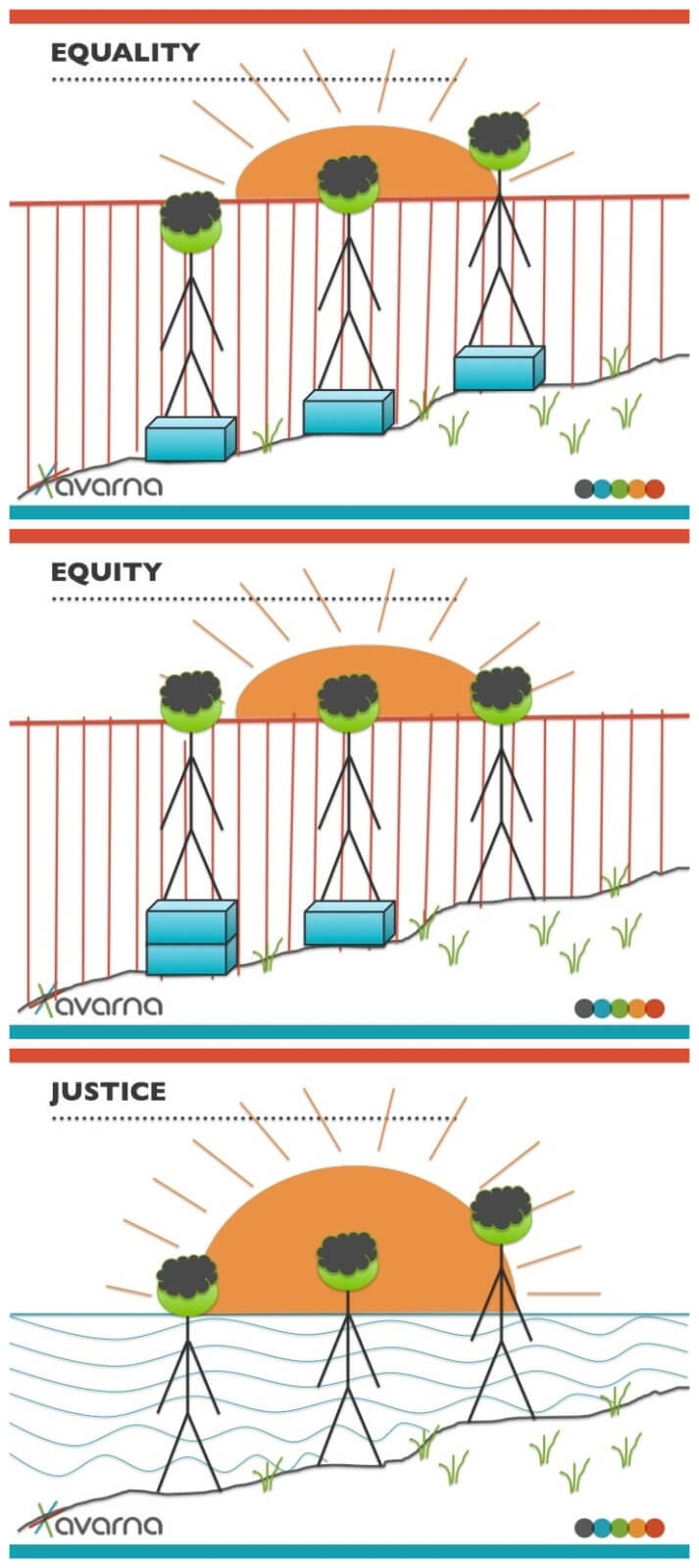Diversity and Inclusion in FREC
FREC's Commitment to Diversity and Inclusion



The Department of Forest Resources and Environmental Conservation (FREC) is committed to cultivating a diverse, equitable, inclusive, and just community that collectively strengthens the Department in all aspects of education, research, and public engagement.
We seek an environment in the Department of Forest Resources and Environmental Conservation that encourages and supports all members of our community (students, staff, and faculty) in pursuing their academic, professional, and personal goals, and we are committed to uphold and promote the Virginia Tech Principles of Community.
FREC’s Commitment to Diversity and Inclusion

FREC’s Commitment to Diversity and Inclusion


We promote respect for the rights and privileges of all, and we seek to understand and appreciate human differences. We believe that we are better collaborators when our students, staff, and faculty reflect the diversity of our world, including, but not limited to: race, gender, ethnicity, sexual identity, socio-economic status, age, ability, religion, national and regional origin, and political philosophy. All are welcomed and critical members of the FREC community, no matter their identities. FREC will not tolerate prejudice or bigotry. We are committed to supporting the ongoing changes and learning that are necessary to eliminate discrimination and fully incorporate diversity, equity, inclusion, and justice into the Department’s structures and values.
FREC’s Commitment to Diversity and Inclusion

FREC’s Commitment to Diversity and Inclusion

FREC Students

FREC’s representative to the College of Natural Resources and Environment Diversity Committee is Amy Brunner (faculty).
FREC Graduate Seminar: The FREC Graduate Seminar provides an opportunity to learn from and network with a diverse array of forestry and environmental professionals. The department aims to have at least one-half of the seminar speakers be female or come from underrepresented racial or ethnic groups, and it has successfully achieved this metric over the last several years.
CNRE Environmental Justice Journal Club: The Forestry Graduate Student Association hosts monthly informal conversations that all CNRE graduate students are invited to join. Our goal is to provide a platform to come together to speak, share, listen, learn and unlearn about topics regarding environmental racism, environmental justice, and intersectional environmentalism in relation to our roles as conservationists, scientists, and educators. If you are interested in joining or learning more, please reach out to Poulomi Dey.
Inclusive Excellence at Virginia Tech: FREC has had two cohorts of faculty members participate in a university-wide effort to foster inclusion for students. Initiatives resulting from this collaboration include:
A new one-hour course, Professional Skills in Natural Resources (FREC/NR 4004), that aims to improve the professional skills of seniors in the fall semester of their final year as they begin the transition from student to professional. The course focuses on soft skills, such as interacting with people, personal responsibility, diversity and inclusion, ethics and integrity, communication, and teamwork.
Field equipment check-out.
Next Generation Scholars Program: spearheaded by FREC faculty, including Associate Professor Carolyn Copenheaver, Professor John Seiler, and Assistant Professor Adam Coates.
Future Faculty Diversity Program: FREC actively seeks applicants for this university-wide effort to increase the representation of American Indian/ Alaska Native, African American/Black, Hispanic/Latinx, and Native Hawaiian/ Pacific Islander individuals in the VT faculty.



Recommended Courses and Workshops from the Virginia Tech Office of Inclusion and Diversity and other VT Organizations
Inclusive pedagogy courses: series of courses addressing the creation of inclusive learning environments and related topics
Virtual SafeZone training: a professional development opportunity offered to the Virginia Tech community that addresses LGBTQ+ identities and issues.



These are a few resources that members of our Diversity and Inclusion committee have found particularly useful. This is not a comprehensive list, but rather a small sampling of some of the articles, webinars, and websites that may provide insights or different perspectives on diversity and inclusion in natural resources.
Batavia, C., Penaluna, B. E., Lemberger, T. R., & Nelson, M. P. (2020). Considering the case for diversity in natural resources. BioScience, 70(8), 708-718. https://www.fs.fed.us/pnw/pubs/journals/pnw_2020_batavia001.pdf
Hogan, K., & Sathy, V. (2018, March 14). Why we’re “speaking up” about inclusive teaching strategies. The Association for College and University Educators Community. https://community.acue.org/blog/why-were-speaking-up-about-inclusive-teaching-strategies/
CNRE: A Conversation on Inclusion and Diversity (recording from March 9, 2021)
Diversity, Equity and Inclusion in Forestry (North Carolina Association of Forestry): Virtual panel conversation about creating and growing a culture of diversity and inclusion in the field of forestry. Speakers shared their stories working with diverse teams, advised the next generation of young professionals, and highlighted strategies business can adopt to build inclusivity in the workplace.
Land and Ladies: a resource for female forest owners and land managers
Women Owning Woodlands: has events listed, some are close by
2021 Diversity Scholars Showcase (recording from May 7, 2021) Virginia Tech Graduate School’s 2020-21 Diversity Scholars shared their projects in a virtual Spotlight showcase. The event features a short video from each of the 10 scholars discussing their work, including Poulomi Dey, FREC graduate student, who created a community-engaged art project titled Reflections on Diversity, Equity, & Inclusion from the Virginia Tech Community (timestamp 1:17:30 in the video.
FREC’s Commitment to Diversity and Inclusion



While it is important to recognize how diversity, equity, inclusion and justice work together as one concept, it is equally important to break down each term separately and understand how they interact. The FREC Diversity and Inclusion Committee has adopted the following definitions of diversity, equity, inclusion and justice so that we may set clear goals and strategies for improvement.
Diversity refers to the variety of personal experiences, values, and worldviews that arise from differences in culture and circumstances. Equity acknowledges unbalanced conditions that exist in society and involves allocating resources to ensure that everyone receives fair treatment and has access to the same opportunities. Inclusion is fostering a sense of belonging by centering, valuing, and amplifying the voices and perspectives of those who experience more barriers or disadvantages based on their identities. As we advance these principles, we aspire to move further toward justice – the assurance of fair treatment – by dismantling barriers to resources and opportunities at Virginia Tech and beyond.
Recent and upcoming events and opportunities:
Links:
Inclusion and diversity in CNRE, Maryam Kamran, CNRE Director of Inclusion and Diversity
Minorities in Agriculture, Natural Resources, and Related Sciences (MANRRS) VT Chapter
University Ombuds: The Ombuds Program can provide confidential and neutral services to help you navigate issues, disagreement and conflict that may arise between you and a peer, colleague, or professor. Connect with the Ombuds. Graduate students may find more information at this link.



